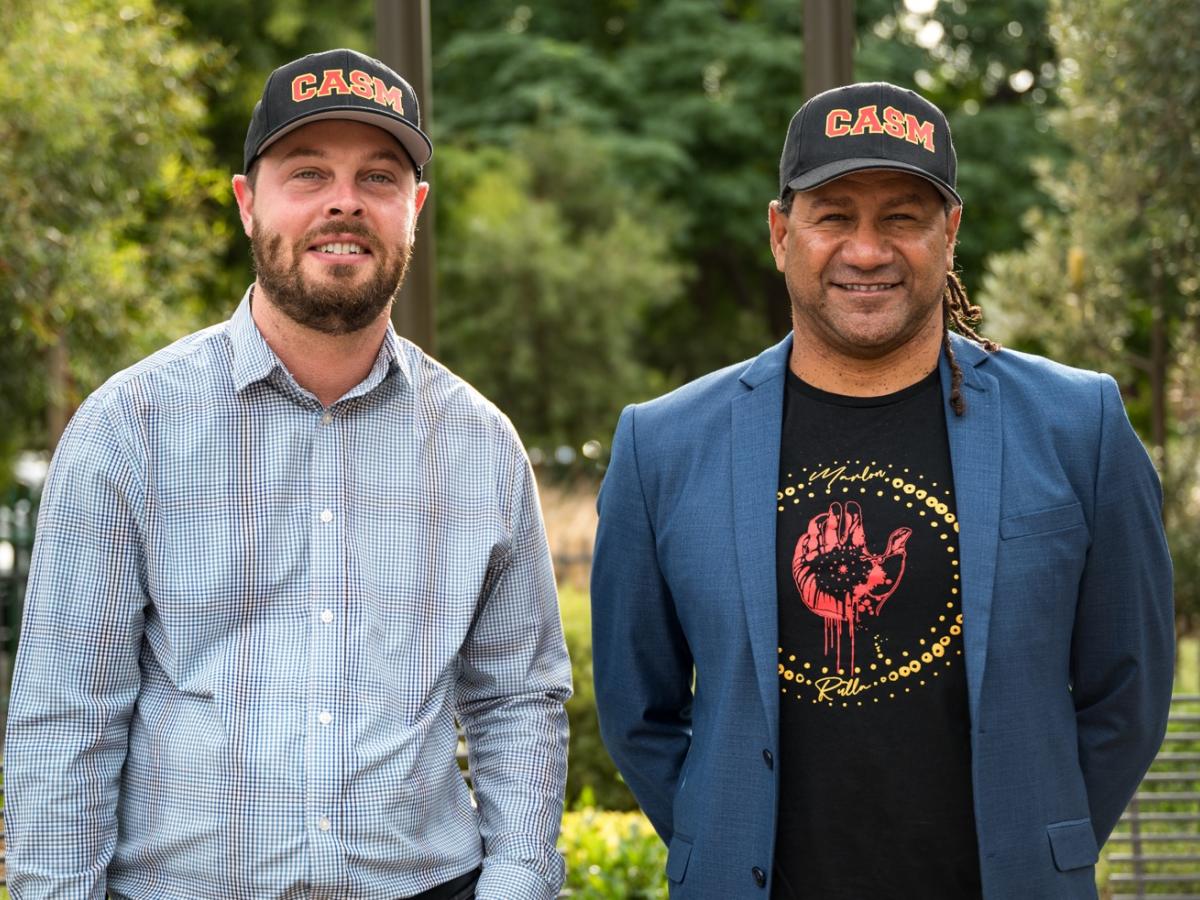
(From left) Dr Dylan Crismani, Co Director at the Centre for Aboriginal Students in Music, and Mr Grayson Rotumah, Co Director at the Centre for Aboriginal Students in Music
The University of Adelaide is pleased to announce joint Indigenous leadership for the Centre of Aboriginal Studies in Music for the first time in its fifty-year history.
Established in 1972, the Centre of Aboriginal Studies in Music is the only university-based centre for studies in Australian Indigenous music which aims to support Indigenous music students and musicians through the provision of high quality, culturally responsive tertiary level music education.
Grayson Rotumah and Dr Dylan Crismani are both lecturers and experienced academics with the University of Adelaide's Elder Conservatorium of Music and Centre of Aboriginal Studies in Music.
Mr Rotumah is a well-respected researcher and advocate of Aboriginal and Torres Strait Islander music through focussed curatorial efforts that give voice to the diversity of a living, dynamic and evolving Indigenous tradition.
Over his almost 30 years as a lecturer at the Centre for Aboriginal Studies in Music, he has been a significant influence on many emerging Indigenous artists and is currently working with new emerging artists Electric Fields, Emily Warramurra and Marlon X Rulla.
CASM wishes to deliver a program that will have greater impact across the four key areas of community, industry, research, and academia.Dr Dylan Crismani, Co-Director, Centre for Aboriginal Studies in Music
Dr Crismani is an Australian composer of mixed Wiradjuri and European descent whose current research looks at central Australian song lines to gain an understanding of what Indigenous tuning systems are, how they are organised, and how they are and can be applied by Indigenous artists in contemporary ensembles.
Crismani is currently the lead Chief Investigator on an Australian Research Council funded project that seeks to redress the cultural power imbalance between Indigenous and Western music traditions.
Mr Rotumah, who joined CASM as a lecturer in 1996, said he was looking forward to being part of the next chapter of CASM.
"Our vision for the future is to lead the Centre based on CASM's historical aims which have always centred around community, education, industry, and research," said Mr Rotumah.
Dr Crismani said he and Mr Rotumah were aligned in their vision for the program.
"CASM wishes to deliver a program that will have greater impact across the four key areas of community, industry, research, and academia," said Dr Crismani.
CASM celebrates 50 years of ground-breaking history with an exhibition at the University Library, Let Our Songs Speak for Us.






